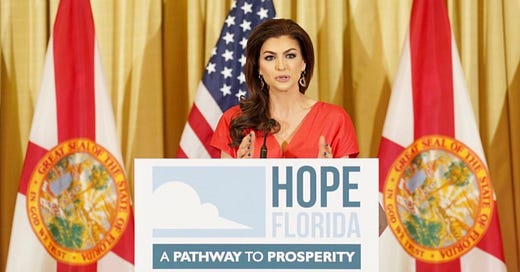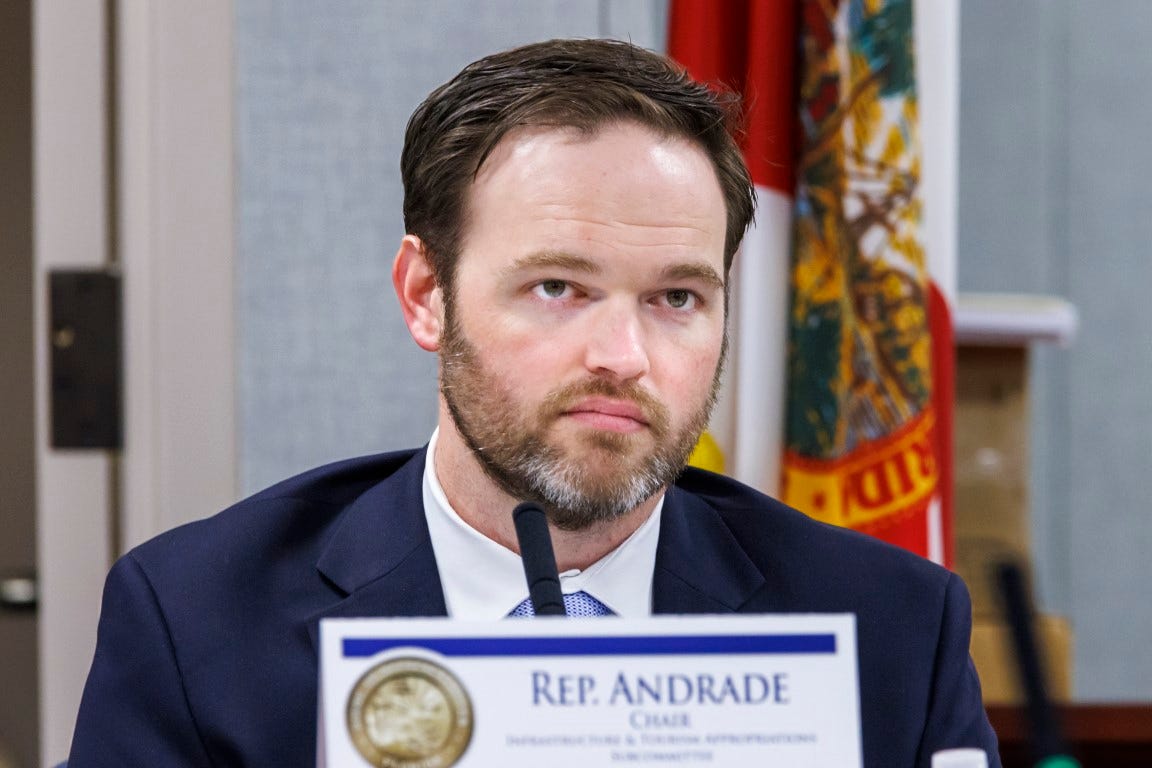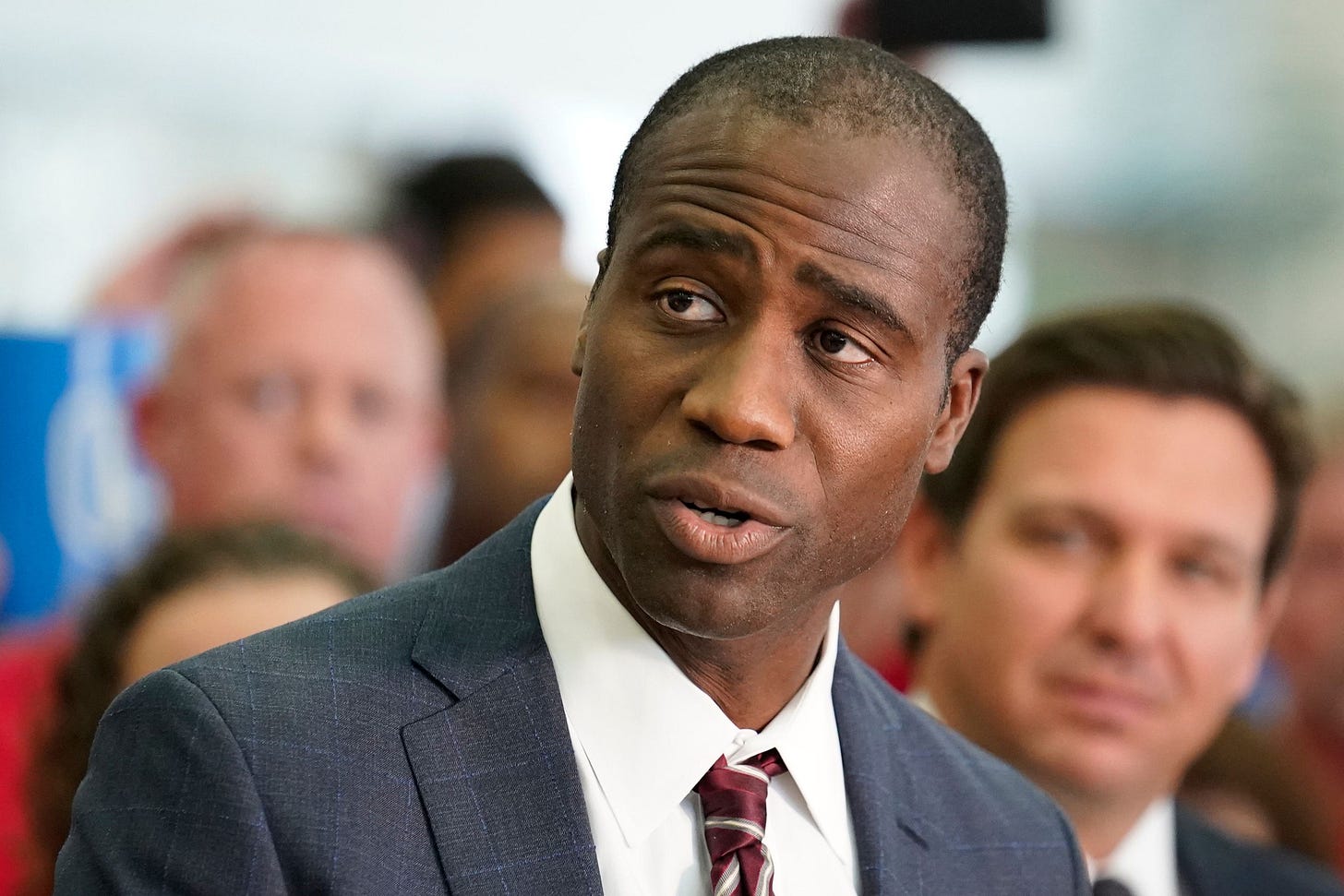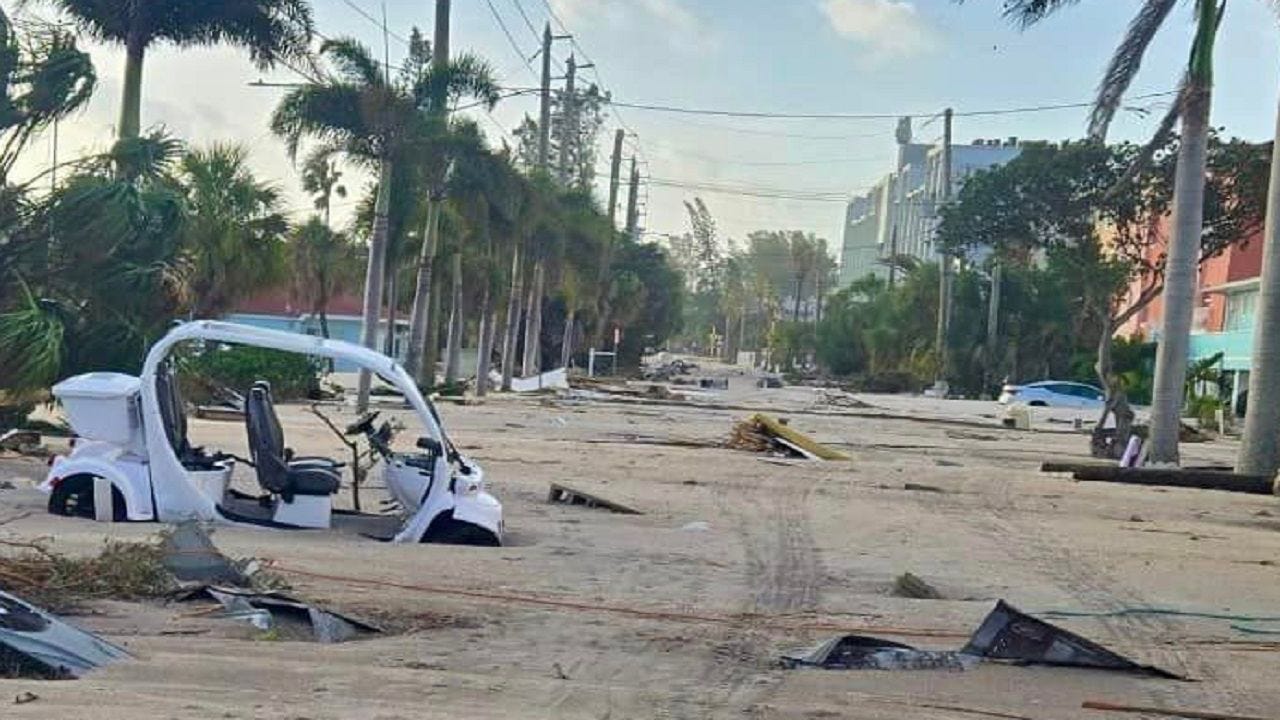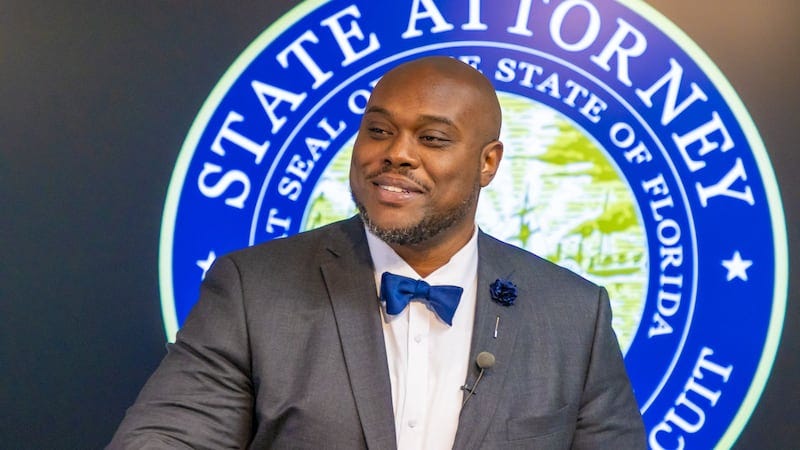DeSantis Administration Under Fire Over Handling of $10M Medicaid Settlement
April 14, 2025 - This Week's News from Central Florida
Welcome to this week’s edition of the Central Florida Times, an independent, reader-supported newsletter focusing on the Sunshine State. These are the most important stories you need to know from across Central Florida. To never miss an update, subscribe here:
Here’s the latest from Central Florida…
DeSantis Administration Under Fire Over Handling of $10M Medicaid Settlement
The controversy over handling a $10 million donation to an organization closely aligned with First Lady Casey DeSantis as part of a legal settlement with Florida’s largest Medicaid operator is intensifying, with lawmakers openly criticizing the circumstances of the agreement and suggesting possible fraud. The story was brought to readers in last Thursday’s edition of the newsletter.
The Hope Florida Foundation, a charitable organization and welfare initiative led by Casey DeSantis, received a donation from Centene, which is a Medicaid-managed care provider for the state. The $10 million contribution was part of a larger $67 million agreement Centene reached with Florida over allegations that their pharmacy benefit manager failed to pass on the drug rebate savings to the state. Per the settlement, finalized in September, Centene was required to wire $10 million directly to the Hope Florida Foundation within a week. During a recent legislative meeting, House Health Care Budget Subcommittee Chair Alex Andrade (R-Pensacola) expressed concerns over the legality and transparency of the donation process, emphasizing that the funds bypassed legislative oversight and should have been deposited in a state-run account. AHCA Secretary Shevaun Harris countered that the money was intended to aid community organizations and families towards self-sufficiency, asserting the funds were not taxpayer money, a claim Rep. Andrade found offensive.
So, how did Hope Florida spend the $10 million donation? New reporting reveals that the money subsequently flowed to two nonprofits: Secure Florida’s Future and Save Our Society from Drugs—each receiving $5 million from the foundation in October. Soon after, those groups contributed millions to Keep Florida Clean, a political committee controlled by Gov. Ron DeSantis’ former chief of staff and current Attorney General James Uthmeier. That committee led a campaign against Amendment 3, which unsuccessfully aimed to legalize recreational marijuana on the 2024 ballot. During two months last fall, the Keep Florida Clean PAC sent $10.5 million to the Republican Party of Florida for political ads opposing the legalization of recreational cannabis. Another $1.1 million went to DeSantis' own PAC. Rep. Andrade argues this arrangement resembles "criminal fraud" and demanded answers about who authorized the payments. “This is fraud, waste AND abuse by @GovRonDeSantis and @JamesUthmeierFL among others,” Andrade posted on X on Friday. “This was a theft of taxpayer [money] and a conspiracy to use Medicaid [dollars] to fund political ads. I have no respect for people who abuse the system this egregiously.” DeSantis defended the $67 million settlement arrangement with Centene as “100% appropriate” and part of a “good deal” the state made with the medicaid operator. Despite requests by lawmakers and journalists, the Hope Florida Foundation has failed to provide documents detailing its finances, organization setup, ethical guidelines, or internal controls—information that is required by state law. While the Foundation is a charitable entity, its contributions to political causes could jeopardize its tax-exempt nonprofit status. The Florida House, led by Rep. Andrade’s efforts and backed by Speaker Daniel Perez (R-Miami), is now demanding more records, including possible subpoenas, as the inquiry deepens. Meanwhile, the controversy comes as legislation to formally establish Hope Florida in law is pending in the State Legislature, as lawmakers examine the program’s role and funding.
Florida's Fluoride Debate Leaves Nearly 1 Million Without Dental Protection
A growing number of Florida cities are choosing to remove fluoride from their public water supplies, leaving about 1 million Floridians now without access to the mineral long promoted for dental health. At least 14 municipalities—including Seminole County, Port St. Lucie, Lakeland, Melbourne, and Palm Bay—have voted to remove the additive in recent months, following a recommendation issued in November 2024 by Florida Surgeon General Joseph Ladapo. Earlier this month, Miami-Dade County voted 8-2 in favor of ending fluoridation, a move that would have affected an additional 2.4 million residents. However, Mayor Daniella Levine Cava issued a rare veto of the resolution, citing the recommendation of health professionals. “The decision to stop adding fluoride to Miami-Dade’s water ignores the guidance of dentists and medical experts who are overwhelmingly trusted by our residents on this issue,” Cava said in announcing the decision. “Halting it could have long-term and wide-reaching health consequences,” she added. The actions by local governments across Florida align with proposed state legislation (CS 700) that would ban fluoride and non-purifying additives in public water systems. Versions of the bill have advanced in both chambers of the State Legislature, and it awaits a final vote on the floor of the Senate. While critics like Surgeon General Ladapo claim that fluoride contributes to neurodevelopmental risks, medical groups like the Centers for Disease Control and Prevention (CDC) note that often-cited studies purported to back their claims involve concentrations far exceeding U.S. safety standards. The American Dental Association warns that removal of the mineral could result in increased cavities and exacerbate Florida's dental crisis, where 23% of young children already have untreated decay. Fluoridation is an especially critical tool in promoting oral health in rural and underserved communities that lack dental access due to shortages of dental professionals. Governor Ron DeSantis supports the anti-fluoridation push, framing it as a matter of personal choice.
RELATED: Seminole County Votes to Remove Fluoride from Water
Seminole County commissioners voted 4-1 Tuesday to eliminate fluoride from the county’s water supply, becoming the first Central Florida county to take such action. The decision impacts over 224,000 residents and ends the county’s 35-year practice of fluoridating tap water. Florida Surgeon General Joseph Ladapo has actively pushed for communities to stop fluoridation, which he described as “public health malpractice.” Despite fluoridation being widely endorsed by the CDC and American Dental Association (ADA) as a key measure to prevent tooth decay, commissioners, swayed by local sentiment, acted after heated debate. At the county commission meeting, dental advocates pointing to the benefits of the mineral additive were outnumbered by opponents. Surgeon General Ladapo’s public remarks and firm stance on the topic have reignited debates across Florida, with other nearby Central Florida cities such as Lake Mary, Longwood, and Tavares previously voting to end the supply of fluoride in drinking water. Meanwhile, U.S. Health Secretary Robert F. Kennedy Jr. has announced plans to push the CDC to reconsider its national fluoridation guidelines.
Pinellas County Seeks Public Input on Historic $813M Hurricane Recovery Funding
Pinellas County has secured the nation's largest single allocation of federal hurricane recovery funds – $813 million from HUD's Community Development Block Grant Disaster Recovery program. The money aims to rebuild communities and address long-term damage from Hurricanes Idalia (2023), Helene, and Milton (2024), with 70% mandated to assist low-to-moderate income residents. To access the funds, county officials must create an action plan outlining specific programs and must gather community input before finalizing. The county is holding public meetings through May to shape the spending plan, which currently proposes dedicating 74% to housing assistance. Programs under consideration include home-repair reimbursement, small business grants, and infrastructure upgrades. The first community forums drew hundreds, and an online survey is available at recover.pinellas.gov to prioritize recovery needs, with funding distributed to municipalities throughout Pinellas. The City of St. Petersburg was awarded a separate $159.8 million grant. If HUD approves the final action plan this summer, disbursements could begin by fall – an accelerated timeline for federal disaster relief.
DeSantis Pushed to Loosen Florida Child Labor Law, Citing Workforce Needs
Gov. Ron DeSantis’ office is behind a controversial push to further weaken the state’s child labor laws, newly released records obtained by Orlando Weekly reveal. The proposed changes would allow teens to work overnight shifts on school nights and eliminate guaranteed meal breaks for some minors. The governor's staff sent draft language and talking points to Republican lawmakers in February, stating last year's rollbacks "did not go far enough." The proposed changes would eliminate hour restrictions for 16- and 17-year-olds, allowing overnight shifts on school nights and removing mandatory meal breaks. It would also exempt homeschooled and online-enrolled 14- and 15-year-olds from protections. A House amendment later added a provision permitting some 13-year-olds to work summer jobs. DeSantis framed the reforms as expanding family choice but tied the effort to help fill workforce gaps left by unauthorized immigrant labor amid increased federal enforcement and strict newly-implemented state laws. The proposed legislation faces an uncertain path ahead in the state Senate, with some lawmakers expressing reservations over its potential impact on children’s education.
New Immigrant Support Hotline in Florida Aims to Ease Fears, Provide Legal Help
A new statewide hotline launched by RAISE — the Florida Rapid Response Alliance for Immigrant Safety and Empowerment — is helping immigrant communities navigate legal concerns and enforcement actions amid heightened federal crackdowns and a sweeping anti-illegal immigration law signed by Gov. DeSantis in February. The hotline, 888-600-5762, is staffed by trained volunteers and advocates who offer guidance in English, Spanish, and Creole. Operated by a network of nonprofits, including the Florida Immigrant Coalition, the hotline connects callers to pro bono lawyers, verifies ICE activity, helps locate detained family members, and links individuals to emergency aid like medical or translation services. In just one month, the hotline fielded over 1,000 calls. RAISE's initiative aims to reduce fear and uncertainty in Florida’s immigrant communities.
DeSantis Reappoints Former State Attorney Andrew Bain to Judgeship
Governor DeSantis has named former Orange-Osceola State Attorney Andrew Bain to an Orange County judgeship—his third gubernatorial appointment since 2020. The move comes five months after Bain lost his 2024 election bid for 9th Judicial Circuit state attorney to Monique Worrell, whom DeSantis suspended in 2023 for “neglect of duty and incompetence" before installing Bain as her replacement. DeSantis asserted she was too soft on crime, claiming she ignored mandatory minimum sentences for crimes involving weapons and narcotics, permitted underage offenders to avoid serious charges, and did not push for sentencing enhancements, which he insisted threatened public safety. Bain’s latest appointment fills a vacancy created by three new judgeships approved by the State Legislature. He previously served as an Orange County judge from 2020 to 2023 before DeSantis tapped him for the interim role as state attorney. After his November electoral defeat, he joined Orlando law firm Byrd Campbell.
Flying Car Makes Debut Over Tampa Bay with Test Flight
Pivotal, a Silicon Valley-based company, demonstrated its futuristic electric aircraft in St. Petersburg last week, with a test flight from Tierra Verde to Fort De Soto Park. The Helix, a single-person, ultralight, all-electric vertical takeoff and landing aircraft (eVTOL), is capable of reaching up to 62 miles per hour and heights of 250 feet. Weighing 380 pounds, it can fly for 20 minutes on a battery charge and is controlled by a single joystick and tablet display. No pilot’s license is needed to fly the Helix — just two weeks of training and a flat takeoff spot. CEO Ken Karklin piloted the single-seat craft during the short demo flight as nearby residents watched on. While eVTOLs, often nicknamed “flying cars,” remain largely unregulated by the FAA, it has attracted interest for potential applications such as emergency medical transport and urban commuting. The company envisions everyday commuting by air by the end of the decade. The Helix starts at $190,000 and will begin shipping to customers later this year.
L.L. Bean to Open First Florida Store
Outdoor retailer L.L. Bean is set to make its Florida debut this May with a new store in Sarasota’s University Town Center. The 17,000-square-foot location will open at 111 North Cattleman Road in the shopping center’s West District, near REI Co-op, which opened in 2023. Known for its rugged outdoor gear and apparel, L.L. Bean was founded in 1912 by Leon Leonwood Bean in Freeport, Maine. The company began with one product—the Maine hunting shoe—and has since grown to over 60 stores across 19 states. The Sarasota store occupies the former Bed, Bath & Beyond space and will offer apparel, equipment, travel gear, and more.
Thanks for reading this edition of the Central Florida Times. To never miss an update, subscribe for free:
In the meantime, if you learned something or found this read interesting, please consider sharing it to grow our community!


